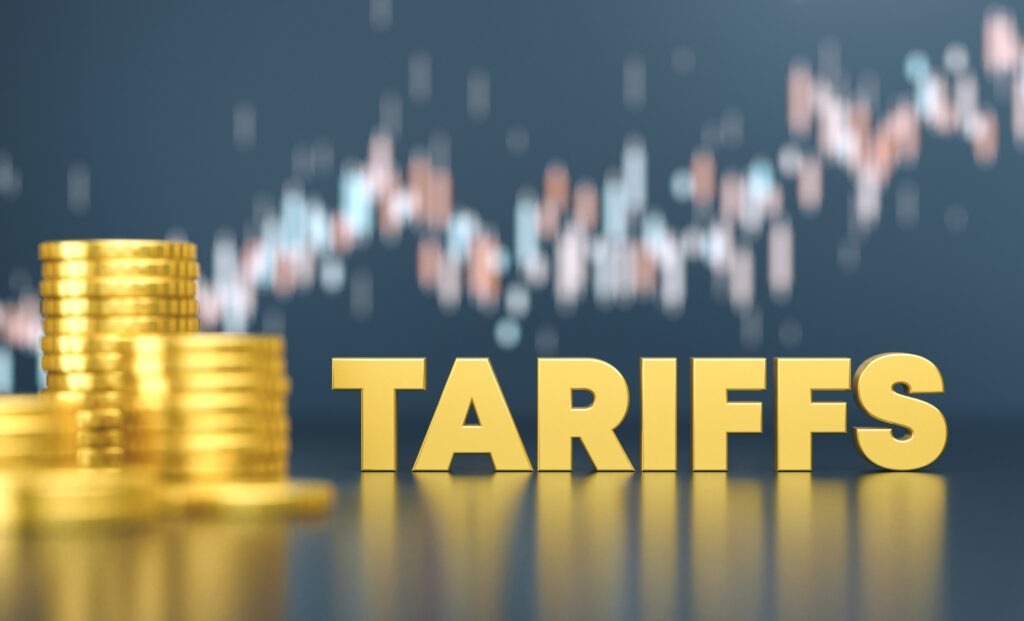The Automotive Update: What is the automotive cost of Trump’s tariffs?
04 April 2025

Trump’s automotive tariffs take effect, the EU Commission submits its CO2 emissions proposal, and carmakers face hefty fines. Autovista24 editor Tom Geggus discusses the week’s major automotive headlines in The Automotive Update podcast.
How are carmakers responding to Trump’s tariffs? Why were manufacturers and industry bodies fined in the EU and UK? What major electric vehicle (EV) charging companies have entered into a partnership?
Subscribe to the Autovista24 podcast and listen to previous episodes on Spotify, Apple and Amazon Music.
Further Trump tariffs
US President Donald Trump announced wide-ranging global tariffs on goods entering the US. Rates stretched between 10% and 50% for different countries. Economic forecasts were hit hard as fears of a recession driven by higher prices took hold.
Following the introduction of the tariffs, businesses and consumers are looking to leaders around the world for their reactions. The potential of retaliatory tariffs hangs in the balance as the global economy braces itself for an escalating trade war.
European Commission President Ursula von der Leyen called the tariffs ‘a major blow to the world economy.’ She did highlight a readiness for negotiations with the US. However, a package of countermeasures is currently in the works in response to steel tariffs.
‘We are now preparing for further countermeasures to protect our interests and our businesses if negotiations fail,’ Von der Leyen added.
Tariffs cost automotive manufacturers
Tariffs on vehicles imported into the US came into effect on Thursday. Cars made outside of the country are now subject to duties of 25%. Further tariffs on parts and components, such as engines and transmissions, are set to begin in early May.
The tariffs will cover more than $460 billion (€416 billion) worth of imported vehicles and parts annually, Reuters wrote.
These tariffs will have a range of impacts on different vehicles, according to the Anderson Economic Group. The lowest impacted models made in the US might see a tariff cost of between $2,500 and $4,500. Meanwhile, imported cars from Europe and Asia could see a potential tariff cost exceeding $20,000.
‘We are deeply concerned about the escalation of trade tensions in the world,’ said Sigrid de Vries, director general of ACEA. ‘We urge our leaders to meet urgently so that they can find a solution to any issues preventing free and fair trade between historic allies and allow the EU-US relationship to flourish once again,’ she stated.
Stellantis plans to temporarily halt some production in Canada and Mexico, as reported by Bloomberg. The carmaker plans to lay off 900 US workers temporarily across five plants, Reuters revealed.
The publication also highlighted that Nissan will not take new US orders for its Mexico-built Infiniti SUVs. Meanwhile, Ford announced discounts across its model range as it relied on its sizeable inventory.
EU emission regulations
The European Commission has submitted its amendment to the CO2 emission standards for passenger cars and light-commercial vehicles. This looks to allow carmakers to average out their emission results for three years, across 2025, 2026, and 2027.
For example, if a carmaker exceeds its emission targets in one year, it could look to compensate for this in the other two.
‘We call on the European Parliament and Council to ensure the fast adoption of this amendment,’ stated de Vries. Meanwhile, Transport and Environment (T&E) called the concessions a mistake, pointing to rising sales of battery-electric vehicles in Europe.
‘The EV sales rebound shows that the existing EU target is working. Require carmakers to sell more EVs, and the buyers will come. It is a mistake to change the rules in the middle of the game. This must be the last flexibility carmakers are given,’ commented Julia Poliscanova, senior director for vehicles and e-mobility supply chains at T&E.
Carmaker cartel fined
The European Commission and the UK’s Competition and Markets Authority (CMA) have fined carmakers for participating in an end-of-life-vehicle-recycling cartel.
The European Commission fined 15 car manufacturers and ACEA a total of roughly €458 million. Meanwhile, the CMA fined 10 car manufacturers and two trade bodies a total of £77.7 million for similar conduct.
In its investigation, the European Commission found that, for over 15 years, carmakers had entered into anti-competitive agreements and engaged in practices related to the recycling of end-of-life vehicles.
European charging body formed
European EV charging companies Atlante, Electra, Fastned and Ionity have partnered to create the Spark Alliance. This body looks to develop a seamless charging network, simplifying the charging experience and making EV ownership easier than ever.
Starting this summer, drivers will be able to charge and pay at any one of Spark Alliance’s 1,700 member stations. This means access to 11,000 charging points across 25 European countries.




